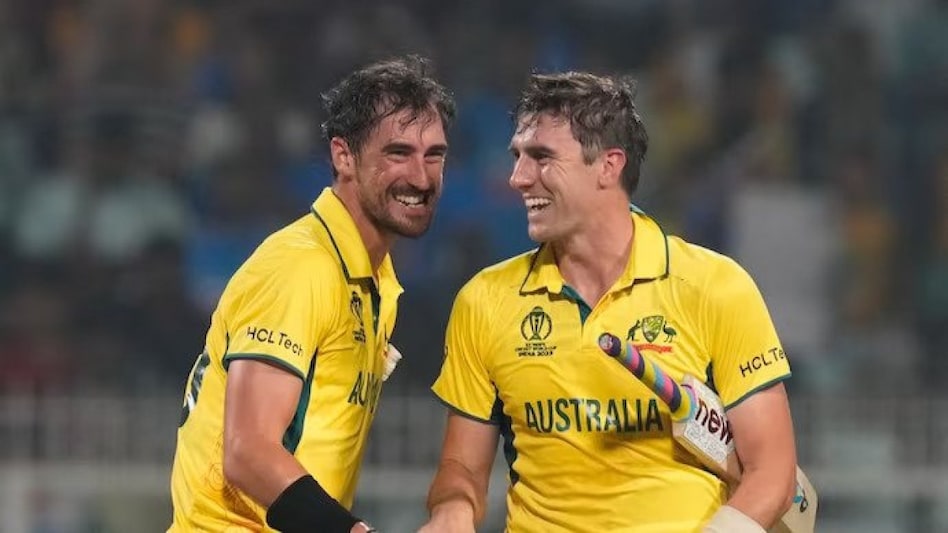
Though David Warner is nearly seven years older, it was Pat Cummins that made his Test debut a fortnight before his fellow Sydneysider. In the 12 years since, the two have played 46 Tests, 73 ODIs and 36 T20Is together. There isn’t a trophy worth winning that they haven’t lifted together. It’s safe to say that they know each other pretty well.
Players that share a dressing room talk. They share their experiences, and their impressions of what’s going on around them. That way, the dressing room is no different from any other workspace. Just as a group of techies might gossip about their project manager, so players will swap opinions about administrators and the way the game is being driven. That’s human nature.
Ask any Sunrisers Hyderabad fan, and the answer will be spontaneous. Warner is, by the width of the Pacific Ocean, the greatest player in the franchise’s history. If you even tried to debate that, you’d be laughed out of a room. His 4,014 runs in eight seasons, and three Orange Caps for the leading run-scorer in the IPL, put him in a league of his own. The year they won their only title, Warner didn’t scoop the Orange Cap, but his blistering 69 (38 balls) in the final and 848 runs for the season were the very embodiment of leading from the front.
This column doesn’t wish to go into how the franchise subsequently treated Warner. There is more than enough material in the public domain. It’s also no secret that most SRH fans still wince then they look back to that period in the franchise’s brief history.
Cummins may not be Warner’s best mate, but he saw those events unfold. He, and other players, would doubtless have been privy to thoughts that Warner has chosen not to share with the world at large. So, there would have been more than a few thousand fans who would have loved to be mind-readers the very moment SRH’s bid of Rs 20.5 crore to sign Cummins was accepted. What was he thinking? Did he celebrate with a fist pump? Or did he have a sinking feeling?
This brings us to the heart of the matter. The players have no say whatsoever in where they go at the auction. They are not at the tables asking franchises to down the paddles if they don’t wish to go there. As in the Roman slave markets of yore, and in the draft system that most US sports follow for college (and very few high school) athletes looking to turn professional, only money talks. In American Football’s National Football League (NFL), for example, the worst-performing team from the previous season gets first pick in the draft so that they can try to bridge the gap. The player only ends up elsewhere if he and that franchise cannot come to an agreement on personal terms.
It’s no secret that Lalit Modi, the IPL’s creator, was heavily influenced by the US sports he watched as a college student there. It’s equally true that the auction system — with its salary cap — endeavours to level the playing field. Otherwise, a franchise like Mumbai Indians, with owners infinitely richer than those of many other teams, would pick up the cream of the talent, much like European football’s leading clubs do. If the IPL is to stay competitive, with interest sustained through a two-month-long season, there cannot be a big divide between the haves and have-nots.
But what of the very real and thorny issue of players’ rights? European footballers were also essentially slaves until the Bosman ruling in the 1990s gave them the power to shape their own destiny. A salary cap is fine, and each new player must go under the hammer once, but what of the established stars? Suppose a Ravindra Jadeja comes to the end of his contract with Chennai Super Kings and wishes to finish his career in Gujarat with the Titans? Surely, he should be allowed to explore that avenue without being thrust back into the auction.
Similarly, if a Mitchell Starc felt that conditions in Mumbai, Bangalore or Mohali would be more conducive to his bowling than the Eden Gardens in Kolkata, surely he should have the right to refuse a bid? In the 21st century, the idea of a star athlete not having individual agency is hard to swallow. It’s an issue that will crop up again and again. And sooner or later, the IPL and those that govern it need to find an answer.
For more sports news click here